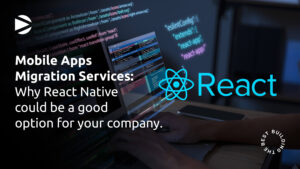How AI is Revolutionizing Software Development: From Code Generation to Automation and Ethical Implications
Table of Contents
1. Introduction to AI in Software Development
The fusion of AI and software development: Why it matters.
How is AI revolutionizing traditional software development processes?
AI’s impact on traditional software development processes is profound and multifaceted. Here’s how AI is revolutionizing these processes:
1. Automated Code Generation and Optimization: AI can write, review, and optimize code, reducing human error and accelerating development cycles. Tools like Tabnine assist developers in writing more efficient and error-free code.
2. Predictive Analytics and Debugging: AI can predict potential bugs and vulnerabilities in the code by analyzing patterns and historical data. This predictive insight allows developers to proactively address issues, enhancing the software’s quality and security.
3. Intelligent Decision Making: AI algorithms can analyze vast amounts of data to make informed decisions during development. Whether it’s selecting the proper framework or determining the best user interface design, AI provides insights that align with user needs and business goals.
4. Enhanced Collaboration and Workflow: AI-driven tools facilitate better collaboration among development teams, streamline workflows, and ensure alignment with project objectives. These intelligent systems can manage tasks, set priorities, and even facilitate communication among team members.
5. Personalized User Experience: AI enables the creation of more personalized and dynamic user experiences by understanding user behavior and preferences. This personalization leads to more engaging and effective software that resonates with the end-users.
2. AI-Driven Software Development Tools and Platforms
Automated code generation: How AI can write and optimize code.
Automated code generation, powered by AI, is revolutionizing how developers write and optimize code. Through machine learning models and natural language processing, AI-driven tools can understand coding requirements and generate code snippets, functions, or even entire modules. This automation accelerates the development process and ensures consistency and adherence to best practices.
AI’s ability to optimize code goes beyond mere code generation. It can analyze existing code to identify inefficiencies, redundancies, and potential errors. AI enhances code quality, performance, and maintainability by suggesting improvements and automating refactoring.
Predictive analytics in debugging: Using AI to predict and fix bugs before they occur.
Predictive analytics in debugging leverages AI to foresee and rectify bugs before they manifest into problems. By analyzing historical data, coding patterns, and developer behavior, AI can identify potential vulnerabilities and areas prone to errors. This predictive insight enables developers to proactively address issues, reducing the time and resources spent on debugging.
AI-driven debugging tools can also provide real-time feedback and suggestions, guiding developers to write more robust and secure code. This proactive debugging approach improves software quality and fosters a more agile and responsive development process.
AI-powered version control: Intelligent tracking and management of code changes.
Version control is a critical aspect of software development, and AI is enhancing this process through intelligent tracking and management of code changes. AI-powered version control systems can analyze code modifications, assess their impact, and provide insights into potential conflicts or dependencies.
These intelligent systems can also automate branching strategies, merge decisions, and conflict resolution, streamlining the collaboration among development teams. By understanding the context and intent behind code changes, AI-powered version control ensures that modifications align with project goals and coding standards.
3. Enhancing User Experience with AI
Personalized user interfaces: Adapting software UI based on user behavior and preferences.
Personalization is key to engaging and retaining users in today’s competitive digital landscape. AI plays a pivotal role in creating personalized user interfaces (UI) by analyzing user behavior, preferences, and interactions. By understanding individual user needs, AI-driven systems can adapt the UI dynamically, presenting content, features, and navigation that resonate with each user.
This level of personalization goes beyond mere aesthetics; it enhances usability, accessibility, and user satisfaction. Whether recommending products, adjusting layouts, or tailoring content, AI-driven personalization creates a more intuitive and engaging user experience.
Chatbots and virtual assistants: Integrating AI-driven communication tools for enhanced user support.
Chatbots and AI-powered virtual assistants are transforming how businesses interact with users. These AI-driven communication tools provide instant support, answer queries, and guide users through complex processes.
Unlike traditional support systems, AI-driven chatbots can understand natural language, context, and user emotions. They can engage in meaningful conversations, provide personalized responses, and even escalate issues to human support when necessary. By integrating chatbots and virtual assistants into software, businesses can offer 24/7 support, enhance user satisfaction, and streamline customer service operations.
4. AI in Software Testing and Quality Assurance
Automated testing: Using AI to simulate user behavior and run tests.
Automated testing, empowered by AI, is a game-changer in software testing and quality assurance. AI algorithms can simulate real user behavior, generate test scenarios, and execute tests across various platforms and devices. This automation accelerates the testing process and ensures comprehensive coverage and accuracy.
Unlike traditional automated testing, AI-driven testing can adapt to changes in the software, automatically updating test cases and scenarios. This adaptability reduces the maintenance burden and ensures that tests remain relevant and effective as the software evolves.
Predictive testing: Forecasting potential issues and areas of concern based on AI analysis.
Predictive testing leverages AI to forecast potential issues and areas of concern before they become problems. AI can identify vulnerabilities, inefficiencies, and possible failure points by analyzing historical data, code patterns, and development practices. This predictive insight enables teams to address issues proactively, enhancing software quality and reliability.
Predictive testing goes beyond mere defect detection; it provides strategic insights into software quality, performance, and user satisfaction. By understanding the underlying factors influencing software issues, teams can make informed decisions and align their testing efforts with business goals and user expectations.
5. Continuous Integration and Continuous Deployment (CI/CD) with AI
Intelligent automation: Streamlining the deployment process using AI-driven insights.
Continuous Integration and Continuous Deployment (CI/CD) are vital practices in modern software development, and AI is enhancing these processes through intelligent automation. AI-driven insights enable the automation of complex deployment tasks, such as environment configuration, build optimization, and release management.
Intelligent automation goes beyond task execution; it brings adaptability, efficiency, and precision to the deployment process. By understanding the context, dependencies, and potential risks, AI-driven systems can make informed decisions, aligning deployment strategies with business goals and user needs. This alignment streamlines the deployment process, reduces errors, and ensures that software releases are timely, reliable, and effective.
Performance optimization: AI-driven analysis to enhance software performance post-deployment.
Performance optimization is a critical aspect of software deployment, and AI enhances software performance post-deployment. Systems can monitor software behavior, user interactions, and system performance through AI-driven analysis. This monitoring provides insights into potential bottlenecks, inefficiencies, and areas for improvement.
AI’s role in performance optimization is not just reactive; it’s proactive and strategic. By forecasting potential performance issues and suggesting optimizations, AI ensures that software meets performance standards and adapts to changing user needs. This adaptability enhances user satisfaction, system reliability, and overall software quality.
6. Ethical and Security Implications
Ensuring AI-driven software respects user privacy and ethical standards.
Integrating AI into software development brings noteworthy ethical considerations concerning user privacy and adherence to ethical standards. AI-driven software often requires access to vast amounts of personal and sensitive data to function effectively. Ensuring that this data is handled with integrity and confidentiality is paramount.
Ethical standards extend beyond privacy to include fairness, transparency, and accountability. AI models must be designed and trained to avoid biases and ensure equitable treatment of all users. Transparency in AI decision-making processes, along with clear accountability mechanisms, fosters trust and aligns AI-driven software with societal values and norms.
AI in cybersecurity: Enhancing software security through AI-driven threat detection and mitigation.
AI’s role in cybersecurity is both promising and complex. On the one hand, AI-driven systems can analyze vast amounts of data to detect and mitigate threats in real-time. They can identify patterns, anomalies, and potential vulnerabilities that traditional security measures might overlook. This proactive approach enhances software security, resilience, and compliance.
On the other hand, the complexity of AI models and their dependency on data make them potential targets for cyberattacks. Ensuring the security and integrity of AI-driven software requires robust cybersecurity measures, continuous monitoring, and a deep understanding of potential risks and attack vectors.
7. The Future of AI in Software Development
The potential of AI-driven DevOps.
AI-driven DevOps represents a significant frontier in the evolution of software development. By integrating AI into the entire DevOps lifecycle, from planning and coding to testing and deployment, organizations can achieve unprecedented levels of efficiency, agility, and innovation.
The potential of AI-driven DevOps extends beyond automation and optimization. AI can provide predictive insights, facilitate collaboration, and adapt processes in real-time. This intelligence transforms DevOps from a set of practices into a dynamic, adaptive system that aligns with business goals, user needs, and technological trends.
Challenges and opportunities in integrating AI deeper into the software development lifecycle.
Integrating AI deeper into the software development lifecycle presents both challenges and opportunities.
Challenges:
1. Data Privacy and Security: Handling sensitive data responsibly and ensuring robust security measures.
2. Ethical Considerations: Ensuring fairness, transparency, and accountability in AI models and decisions.
3. Complexity and Maintenance: Managing the complexity of AI models and maintaining them as technology evolves.
4. Skills and Expertise: Building and retaining the necessary skills and expertise to leverage AI effectively.
Opportunities:
1. Enhanced Efficiency and Agility: Automating and optimizing processes across the development lifecycle.
2. Personalized User Experiences: Creating dynamic, user-centric software that adapts to individual needs.
3. Proactive Quality Assurance: Predicting and addressing issues before they become problems.
4. Strategic Alignment and Innovation: Leveraging AI to align development with business strategy and drive innovation.
Integrating Artificial Intelligence into software development is not merely a technological advancement; it’s a transition redefining the industry. From automating complex coding tasks and personalizing user experiences to ensuring robust quality assurance and navigating ethical and security landscapes, AI sets new standards for efficiency, innovation, and user engagement.
As we look to the future, embracing AI-driven development is not just an option but a strategic imperative for businesses aiming to stay competitive. The challenges are substantial, but the opportunities for enhanced efficiency, agility, and alignment with evolving market trends and user needs are unparalleled.
As technology, ethics, and business converge, the role of AI in shaping the future of software development is a narrative that is still unfolding, promising a new era of excellence and innovation.
Learn more about our services!
Or contact us directly! Ask away!
And we will have the perfect role for out-of-the-box thinking developers ready to change the game and enhance your business to new heights.


